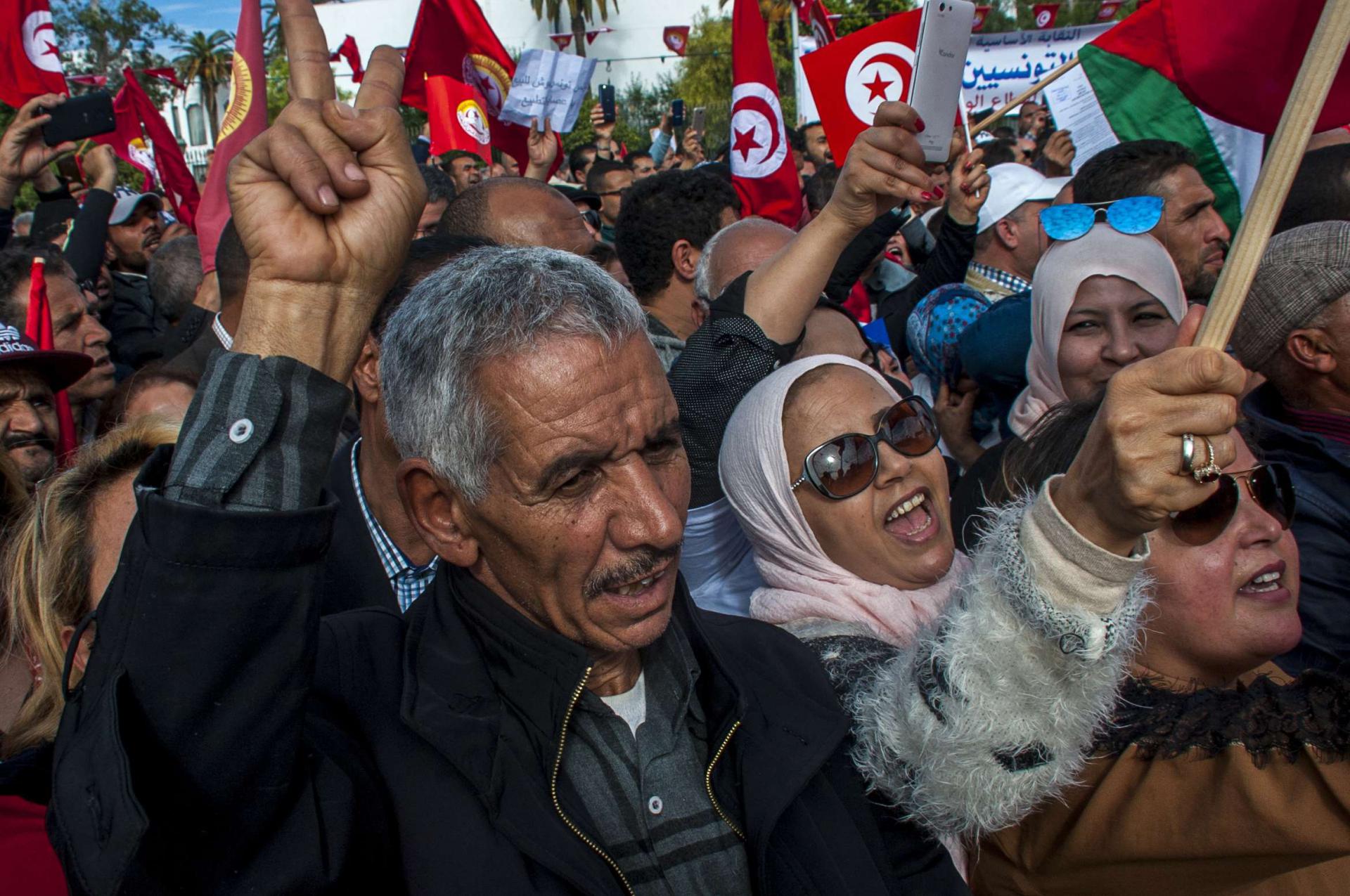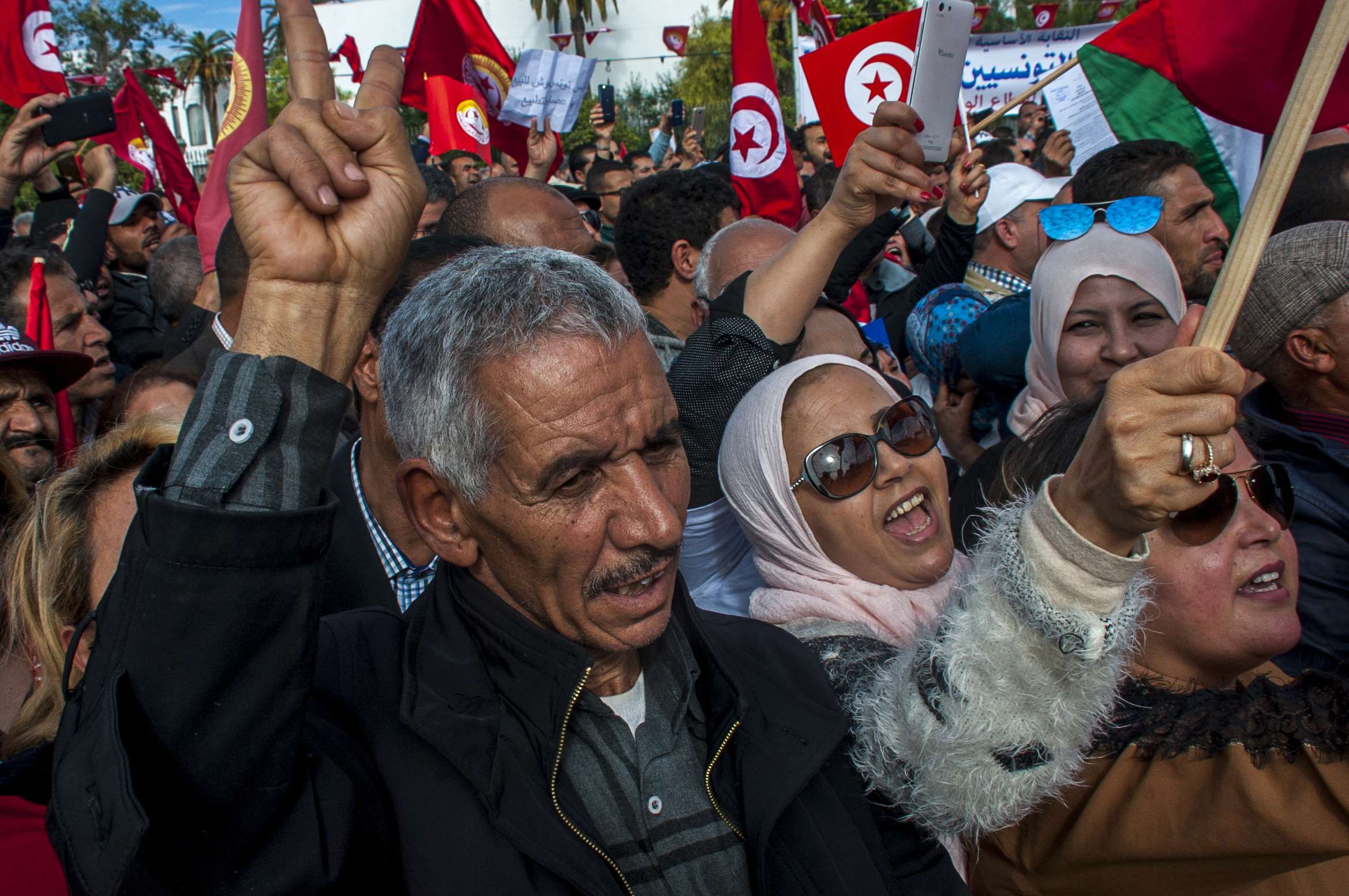Tunisia strike deadline looms amid social tensions
TUNIS – Leaders of the Tunisian General Labour Union (UGTT) travelled the country to drum up support for a strike called for January 17, despite cautions from Tunisian President Beji Caid Essebsi that a similar stoppage 41 years ago disrupted the peace and accelerated the “fraying” of the government.
“The general strike… will be a turning point in the history of Tunisia and a watershed moment for the country,” UGTT Secretary-General Noureddine Taboubi said January 3 at a rally in Gabes.
The government acknowledges the UGTT’s grievances about deteriorating purchasing power but it said it cannot agree to pay raises due to its commitment to the International Monetary Fund (IMF) to cut government spending and balance the budget.
The IMF warned Tunisia to keep public sector wages under control to avoid severe debt problems. An IMF study indicated that Tunisia’s public sector wage bill, relative to the size of its economy, was among the highest in the world.
Assessment of Tunisia’s performance by the IMF is important because the country receives vital aid from the IMF contingent on economic reforms. In September, the IMF approved a $245 million loan tranche to Tunisia under a $2.8 billion programme, after talks local analysts described as difficult.
A disbursement of the next tranche depends on the results of a report by the IMF, which is to send a team to Tunis in the next few weeks.
“The government was going slowly in its proposals over wage increases and they were very far from our demands when they came. There was no indication that a deal would be made to call off the strike,” said Taboubi.
“Purchasing power erodes very quickly as the prices soar. It is necessary that the wage increases live up to the expectations of the citizens.”
UGTT official Samir Cheffi said the union dismissed a government offer to hike wages of up to 80 dinars ($27) per month. He said the UGTT is seeking monthly wage increases of 270 dinars ($91).
In November, the union called off a strike by workers at state-owned companies after it received pay raises.
Financial experts said meeting the demands for further public service wage increases would widen their proportion of the country’s GDP, estimated at 15.5% in 2018. That would not be welcomed by the IMF.
UGTT leaders have vowed to press the wage issue in the next election, scheduled for November. “With this huge popular support, we will reset the political compass of the country,” Taboubi said in reference to the UGTT’s possible alignment with anti-Islamist forces.
As they toured the country, UGTT leaders explained they expect their supporters to vote for candidates who share their views in social and economic programmes and defend a reinforced role of the state in the economy.
Tunisians are divided about the UGTT and its role in the country’s politics.
Many economic and political elites want the UGTT to preserve its role as a “factor of stability” by steering clear of obvious political alignments. Others say the union shares the blame, along with the country’s elites, for pushing Tunisia into an unprecedented social and economic crisis that caused the country to lose most of its leverage in attracting investments and boosting exports.
“The political parties and the UGTT are responsible for the crisis,” said former Finance Minister Houcine Dimassi. “Parties and the UGTT are driving the country towards its ruin.”
The showdown over the wage increases and the risks of the planned strike prompted Caid Essebsi to call on Tunisian Prime Minister Youssef Chahed and other political leaders that back his government, including Ennahda Movement President Rached Ghannouchi, to “face the consequences.”
Samir Majoul, the leader of the Tunisian Union of Industry, Trade and Handicrafts, a business federation, joined Taboubi and other leaders in a meeting with the president December 28.
“You are accountable for the situation in which we are in,” Caid Essebsi said during the meeting. “You are responsible for coming up with solutions as parties in the government because the crux of political activity is the result.”
He emphasised the risks to the country’s stability if protests begin without an agreement about the wage issue.
“The general strike in 1978 led to violence and massive detentions that caused by and large the erosion of the regime at that time,” Caid Essebsi said.
A 24-hour general strike orchestrated by the UGTT on January 26, 1978, against the government erupted into violent demonstrations in several cities. It was the first serious challenge to then-President Habib Bourguiba in his 22-year reign.
The government imposed a curfew and a state of emergency after several people were killed in the protests and top UGTT leaders were detained.
Lamine Ghanmi is a veteran Reuters journalist. He has covered North Africa for decades and is based in Tunis.
This article was originally published in The Arab Weekly.




